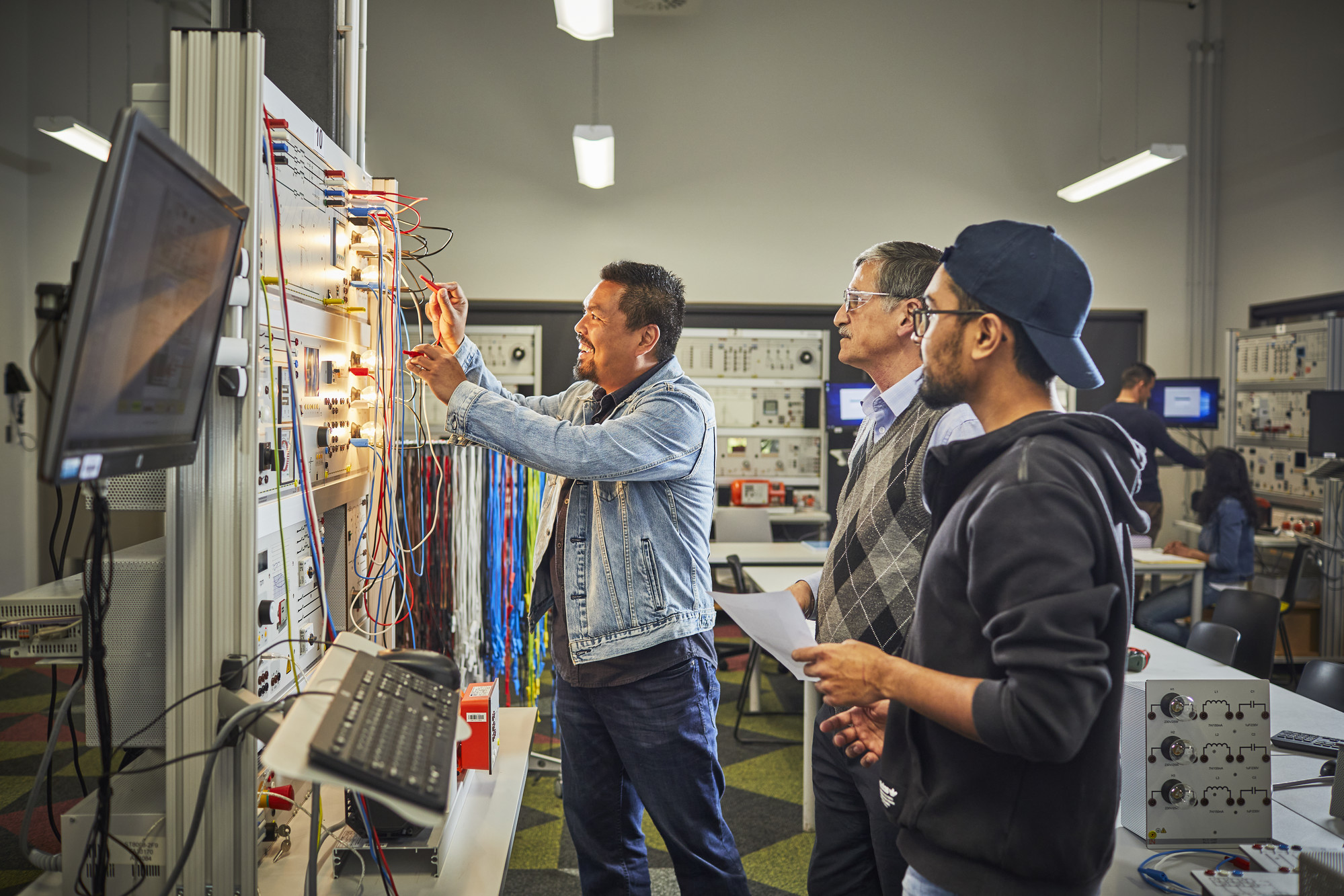Programme overview
Keep pace with the rapid advances in technology, as well as the technical, business and interpersonal skills required in the field of electrical and electronic technology. This programme will help you to discover what it takes to develop and service electrical and electronics equipment. You’ll also learn how to extend your technical, business and interpersonal skills to be able to critically evaluate, problem solve, and work cross-functionally to prepare for supervisory and/or management roles.
Upon graduating from this programme, you’ll have a good understanding of the industry, and would have gained transferable skills and confidence in management and problem solving. You’ll also be able to use conceptual thinking and innovative technology practice to provide effective industry solutions. There are highly desirable skills and knowledge sought after in the industry, which means that your learnings from this programme could lead to career progression, creative invention or thought leadership, as well as entrepreneurial enterprise.
Highlights
-
Great industry links: thanks to our strong ties with industry sponsors, you get to hone your skills using the latest electronics software, work-bench-simulated circuits, mechatronics and electronic workbenches and microprocessor hardware. There’s even opportunity for them to sponsor your final-year project.
-
You'll undertake a major industry project in your final year, giving you a chance to make valuable contacts.
-
The mix of theory and practical work will provide you with the knowledge to confidently apply your skills in a wide range of situations and/or turn your inventive ideas into reality.
Qualification pathway
Once you’ve successfully completed this programme pathway, you'll receive the qualification: Bachelor of Applied Technology.
Admission requirements
What you will need to study this programme.
Domestic students
International students
Academic requirements
As a part of this requirement, you must meet at least 16 years of age and meet one of the below;
- Successful completion of New Zealand Certificate in Electrical Pre-Trade (Level 3)
- All applicants must be at least 16 years of age when they begin their studies, and they should meet the country-specific admission requirement;
- And English entry requirements;
- If English is not your first language, you will also need at least one of the following qualifications:
- Evidence of an IELTS (Academic) band score of at least 6 with no band score lower than 5.5
- University Entrance Literacy: 8 credits at Level 2 or higher in English or Te Reo Māori (a minimum of 4 credits must be in Reading and a minimum of 4 credits must be in Writing);
- Provide evidence that they have the English language proficiency required for the Programme as demonstrated through evidence of one of the kinds described in NZQA Rules on the Unitec English Language Requirements for International Students Web-page.
- If English is not your first language, you will also need at least one of the following qualifications:
Don’t meet these Academic requirements?
- If you don’t meet the academic criteria, our Bridging Education Programmes can help you qualify. Simply apply online, and we’ll be in touch about your next steps
- If you don’t meet the above criteria, special or discretionary admission may apply; your eligibility will be determined at the interview.
For more information, download the full programme regulations; click here to download
Courses and timetables
For more details on the courses including timetables, please click on the course names below.
| Courses | Credits | Aim |
|---|---|---|
| Technology Skills 1 (APTE5101) | 15.0 credits (0.125 EFTS) | To introduce and develop effective skills for the investigations and learning required for studies in technology. |
| Technology Skills 2 (APTE5102) | 15.0 credits (0.125 EFTS) | To develop knowledge and understanding of industry structures, Treaty of Waitangi//Tiriti o Waitangi implications, small business practices, and use of industry software in selected areas of technology. |


